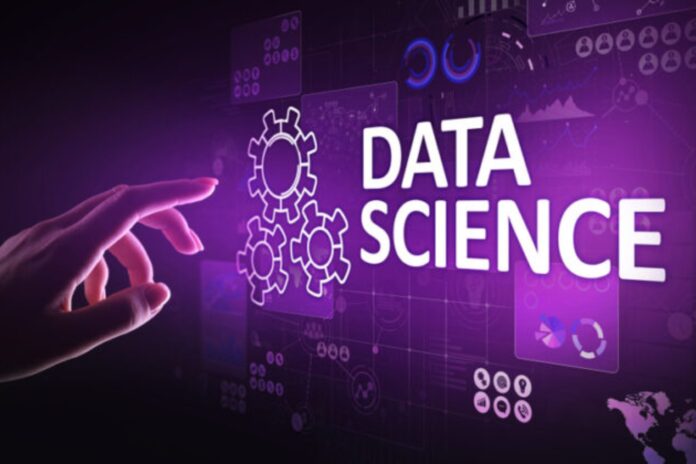Data Science is a rapidly growing field that offers organizations new ways to leverage data and grow their businesses. With the help of Data Science, organizations can gain insight into customer behavior, identify trends, optimize processes, and make better decisions. The use of Data Science has the potential to provide organizations with an unprecedented competitive advantage in today’s digitally-driven economy, and this is why many organizations are becoming increasingly eager to leverage Data Science in the workplace. There are numerous benefits to using Data Science in the workplace, including increased operational efficiency, cost savings, and improved decision-making.
Additionally, organizations that leverage Data Science can leverage new data sources to explore new markets, engage more customers, and drive better business outcomes. This article examines the many benefits of leveraging Data Science in the workplace. Keep on reading to know about it in detail!
Benefits of introducing Data Science in the Workplace:
In this section, you will come to know about the benefits in detail, and these are as follows:
Help in predicting consumer behavior and uncovering untapped opportunities:
Data Science can play an essential role in helping to predict consumer behavior and uncovering untapped opportunities in the workplace. This is because Data Science applies advanced quantitative techniques to the analysis of large volumes of data to uncover insights that could otherwise remain hidden. These insights can be used to gain a better understanding of how people make decisions and can be used to inform decision-making processes.
For example, Data Science can analyze customer purchasing habits, trends, and preferences. Using this data, companies can understand what products and services their customers are likely to purchase and when they are likely to purchase them. This can allow companies to tailor marketing campaigns to target the right people at the right times, increasing their chances of garnering a larger customer base.
Enable businesses to optimise their processes and cut costs:
Data Science can help businesses optimise their existing processes by uncovering correlations and other patterns from their data. This can help identify waste areas and provide opportunities for businesses to make improvements. Additionally, businesses can leverage predictive modelling techniques to assess and mitigate risk by predicting future outcomes.
This can also inform businesses on cost-saving opportunities. Businesses can use data to understand better and identify which resources are being used and how efficiently. They can use this data to improve the cost structure and allocation of resources, such as staff and machines, to reduce wasteful spending.
Ease recruitment by understanding hiring trends:
Using Data Science to understand hiring trends is a valuable tool for companies who aim to improve their recruitment process. By leveraging Data Science, companies can more accurately assess their current candidate pool, identify and anticipate trends, and better target talent.
Data Science can enable employers to examine their current applicant pool and establish criteria for successful hiring. Companies can use this data to analyze hiring trends, such as seasonality, gender, race and ethnicity, skill sets, and years of experience across various departments and roles. This data can be used to gain insights into which hiring criteria are more effective in meeting organizational objectives and hiring a more diverse and talented pool of employees.
Assist in making more accurate business forecasts:
Data Science allows organizations to collect, analyze, and interpret large datasets, revealing patterns and correlations that may not be obvious at first glance. This data can be used to identify trends and patterns. This helps enterprises forecast future potential scenarios more accurately and better prepare for them.
By leveraging Data Science, organizations can more effectively track changes in consumer behavior. This insight allows them to adapt their strategies to the changing market and prepare for new opportunities. Furthermore, they can be proactive in identifying potential risks and take measures to minimize their potential impact. In an ever-changing business climate, the knowledge gained from leveraging Data Science allows organizations to stay ahead of their competitors.
Help reduce attrition and improve customer experience:
Data Science can help businesses in many ways to reduce attrition and improve customer experience. With Data Science, businesses can find patterns and trends in customer data that can help them pinpoint potential touchpoints to better understand customer needs. This can lead to personalized customer experiences that are tailored to customer preferences. Additionally, Data Science can help businesses better understand customer attrition by looking at the data points associated with customers at risk of leaving. By using data to identify these customers, businesses can take proactive steps to reduce attrition and keep customers engaged.
Enhance customer segmentation & personalization:
Customer segmentation is the process of dividing up customers into different categories based on their specific characteristics. This includes demographic items such as age, location, gender, race, and income. By understanding customer segmentation, businesses can more effectively target their marketing campaigns, increasing their chances of making a sale.
Personalization is what truly sets a business apart from its competitors. By understanding customer behavior and preferences, businesses can effectively create personalized campaigns and content that appeal directly to their target audience. Personalization also increases customer satisfaction by providing tailored content and services.
Data Science can also be used to increase operational efficiency. By collecting and analyzing data, companies can identify where improvements can be made, such as reducing energy costs, streamlining the supply chain, or introducing more automated processes.
Facilitate better decision-making with meaningful insights:
Data Science has become an integral part of many businesses, allowing companies to gain a better understanding of their data and customers. With the use of Data Science, businesses can improve decision-making and gain meaningful insights that previously may have been difficult to obtain. Data Science enables businesses to access and analyse large amounts of data to identify trends and correlations between variables, providing businesses with a complete picture of their operations. This information can be used to forecast demand accurately, understand customer behaviour, and anticipate future market trends.
Data Science also helps businesses to better manage risk. By understanding potential bias in data, businesses can identify unforeseen pitfalls in decisions taken and adjust accordingly. Furthermore, Data Science can identify potential opportunities that may not have been easy to spot without its use. This can help businesses make practical, data-driven decisions that save time and money.
Offer 360-degree customer view through data integration:
Data Science is becoming increasingly popular in the workplace and can bring many benefits, including offering a 360-degree customer view through data integration. By using Data Science to integrate data from different sources, businesses can gain an understanding of customer behaviour that would otherwise be unattainable. With this broader view, businesses can better tailor their services, marketing campaigns, and customer service to meet customer needs; this, in turn, can increase customer satisfaction and, in the long run, loyalty. Furthermore, data integration can help businesses draw correlations between different data sources and make better decisions about how to use resources, target messages to customers, and develop better products and services.
Enhance risk assessment to identify and mitigate problems:
Leveraging Data Science Certification Course Online in a workplace setting has several important benefits, and one of them is to enhance risk assessment processes to identify and mitigate problems. By mixing Data Science into risk assessment processes, organizations can better identify risks and make sure that proactive measures are taken to prevent them. Data Science tools and techniques can be used to analyze large volumes of data in an automated fashion, allowing companies to detect potential risks faster and more accurately than with manual methods.
With the help of Data Science, organizations can implement risk management processes that are more in-depth and can detect problems that may have gone unnoticed in the past. Additionally, predictive analytics can help organizations create more accurate forecasts of their risks and how they may develop in the future. This allows them to put measures in place to mitigate problems and reduce the likelihood of them happening.
Enable organizations to intelligently automate workflows:
Data Science gives organizations the power to optimize existing workflows by intelligently automating mundane tasks and freeing up employee time. By leveraging Data Science, organizations can identify opportunities to streamline and automate business processes, and move away from manual labor. Data Science allows organisations to mine and analyze vast quantities of data to detect potential workflows, drive efficiency increases, and provide a more targeted approach for operations.
Automating complex workflows can reduce the need for manual interventions, and the number of staff required to complete the same tasks and reduce the time it takes to complete tasks. With the help of Data Science, employees can focus their efforts on more value-adding activities and, thereby, increase their productivity. Using Data Science can also help minimize errors in workflows and make processes more efficient.
Help organizations future-proof processes & operations:
One of the biggest benefits of leveraging Data Science in the workplace is that it can help organizations future-proof their processes and operations. By using advanced analytics, organizations can better understand customer preferences, identify emerging trends, and anticipate the needs of their customers and stakeholders. This allows them to invest in the right areas, create new products and services tailored to customer needs, and fine-tune their operations to stay competitive.
Data Science also allows organizations to better understand their customers and their behaviors. This can help organizations provide more targeted and personalized services to their customers, ensuring their seamless and enjoyable experience. Additionally, Data Science can help organizations make better-informed decisions regarding budgeting, forecasting, and marketing.
Conclusion:
Data Science has the potential to bring significant transformation to the workplace by helping organizations get the most out of their data. With Data Science, organizations can gain insights from data analysis, track trends, and make educated decisions. Data Science tools can also automate business processes, reduce costs, and enhance customer experience. In summary, leveraging Data Science in the workplace can help organizations increase their efficiency, maximize their profits, and achieve their goals.
If you wish to learn Data Science, enroll in Pickl.AI and start learning. This institute offers the best education for all the students who wish to learn about it.



